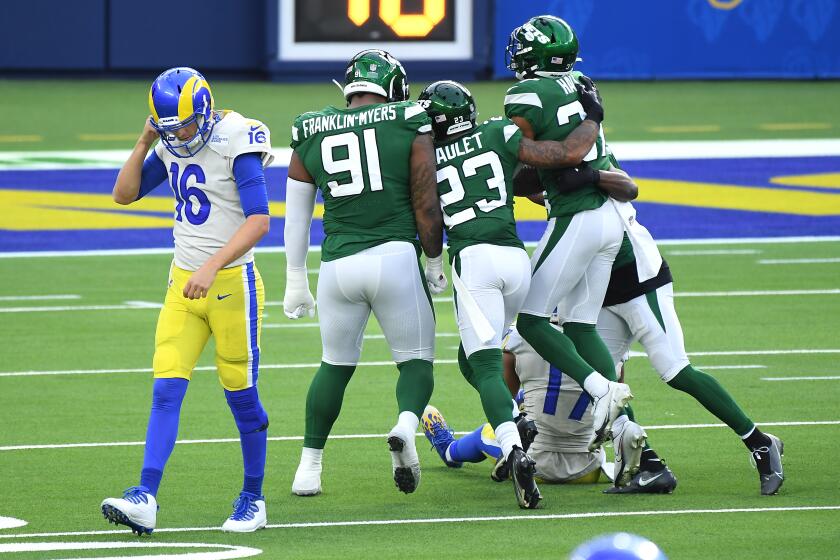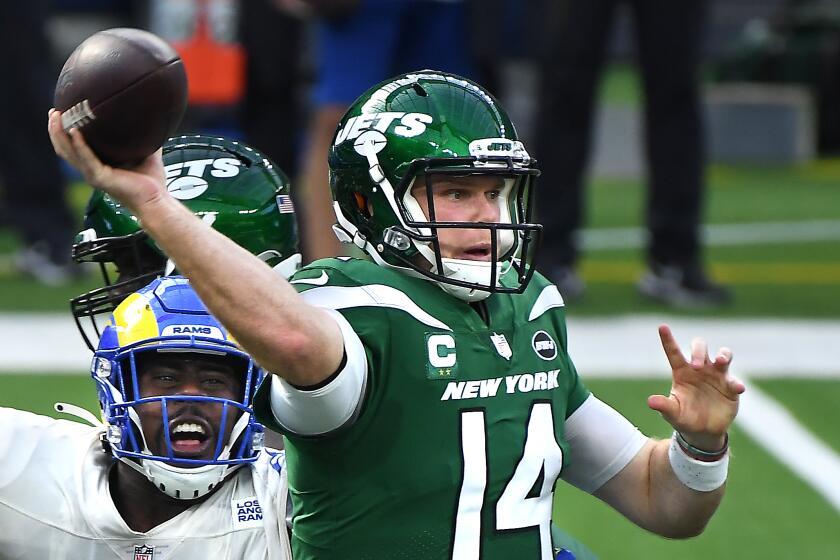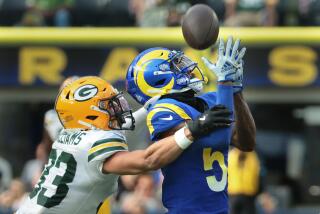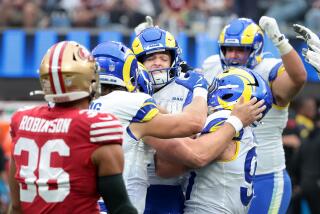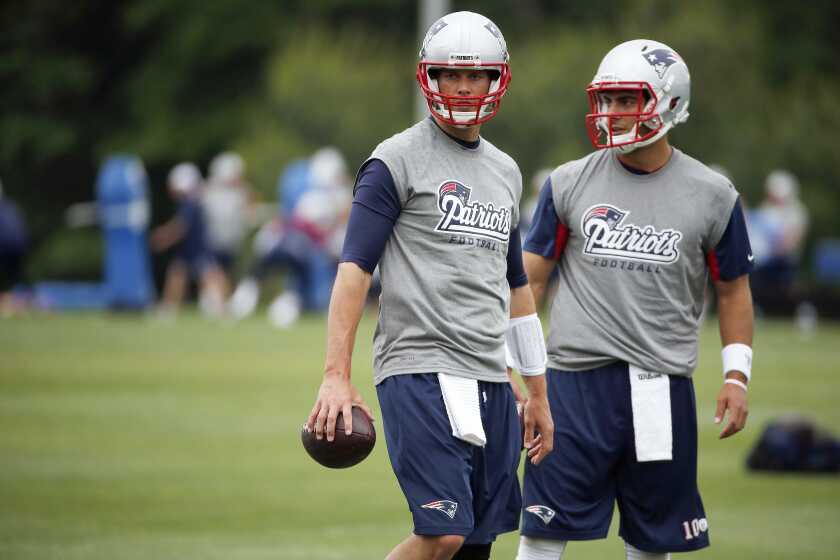Jared Goff has no regrets for going deep on Rams’ final drive vs. Jets
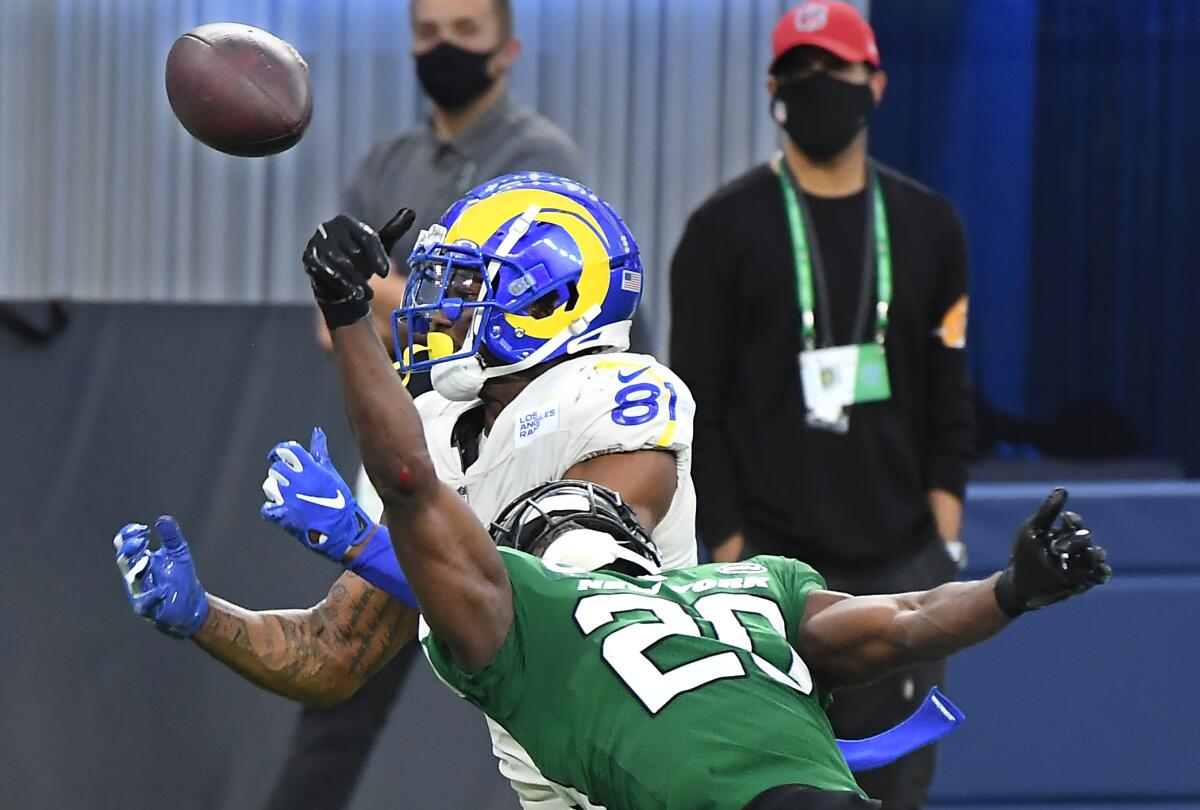
They only needed four yards.
About 12 feet of turf separated the Rams from the orange chain marker to reach the necessary distance to convert a first down. And since they trailed late in the fourth quarter against the New York Jets, they had two tries to make it.
But instead of short passes or runs from the Jets’ 37-yard line, coach Sean McVay stood on the sideline, his arms crossed tightly near his chest and neck, and called two deep shots.
Both fell incomplete.
So, instead of scoring a touchdown or running past the field goal unit on the way to the sideline, the Rams’ offense watched as the Jets (1-13) burned the remaining four minutes to win 23-20, their first victory of the season.
Asked if he thought of audibling to something other than long-distance heaves in a short-yardage situation, quarterback Jared Goff had a simple answer.
“No,” he said.
Rams miss a chance to clinch an NFC playoff berth after falling to the previously winless Jets 23-20 in perhaps the biggest shocker of the NFL season.
The Rams (9-5), who struggled offensively in the first half, started its final series just past midfield thanks to a 34-yard punt return by Nsimba Webster. On the second play, rookie running back Cam Akers rushed for 22 yards, but a penalty negated the gain. A six-yard catch from receiver Cooper Kupp placed the Rams on the Jets’ 37-yard line.
On third and four, the Rams lined up in an empty formation — Goff alone in the backfield with Kupp, receiver Robert Woods and tight end Tyler Higbee to the right, and Akers and receiver Josh Reynolds to the left. The Jets pressured with five rushers and played man coverage with one defender to help over the top.
Reynolds ran a curl route, and Akers followed closely on his hip and continued on a wheel route to the sideline. Goff sailed the pass to Aker’s outside shoulder, but it landed out of bounds in front of him with linebacker Neville Hewitt in coverage. Both McVay and Goff said the patterns could have developed more before Goff decided where to throw.
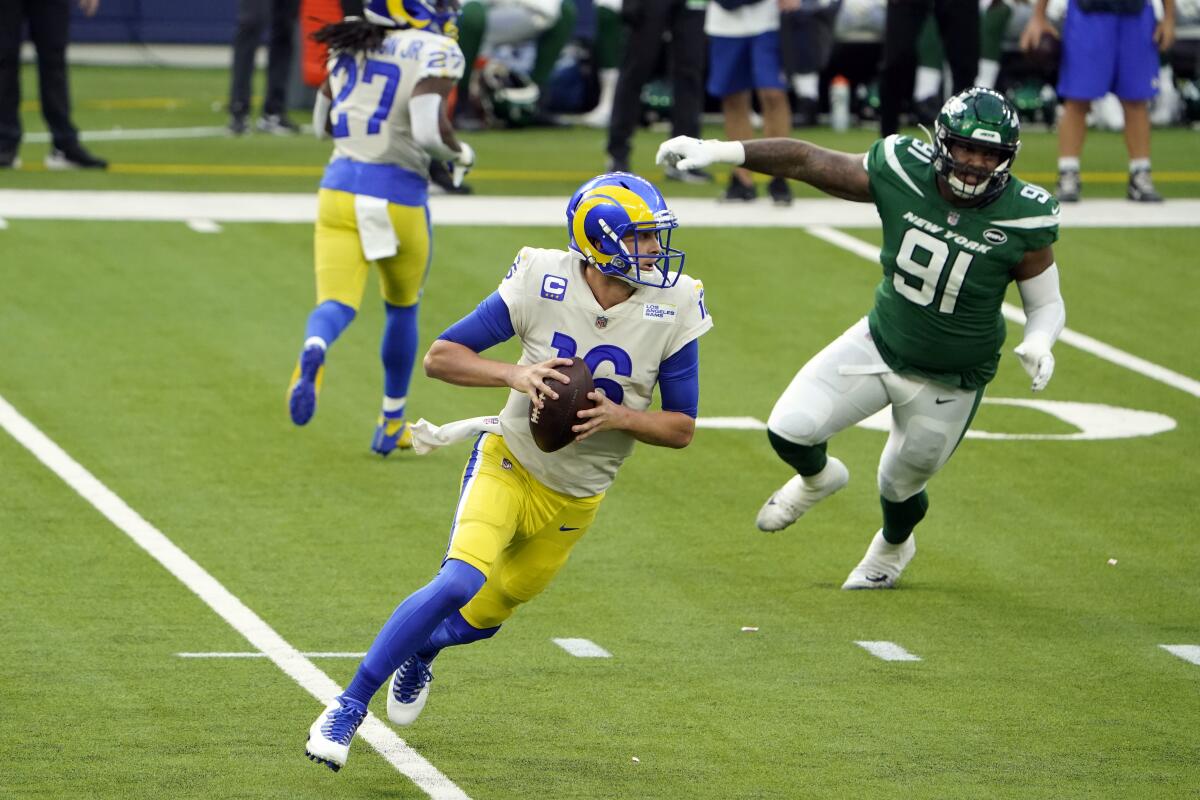
“I would have liked to give him a little bit more of a chance there or maybe progress through the play,” Goff said. “I didn’t love where I put it.”
Had the Rams settled for a field-goal attempt, it would have been around 55 yards. Kicker Matt Gay already had connected on attempts from 42 and 45 yards earlier, but McVay chose to go for it on fourth down.
Again, the Rams lined up in an empty formation, this time the bunch set to the right with tight end Gerald Everett instead of Higbee. The Jets also ran a similar scheme with a five-man rush and a single defensive back over top.
Everett ran a fade route with an outside release to the end zone. Goff lofted the pass to him, but Jets safety Marcus Maye, who is three inches shorter than Everett, tipped the ball before Everett could catch it. Maye then wagged his finger in celebration as he backpedaled toward his bench.
Rams coach Sean McVay’s words of encouragement to Jets coach Adam Gase prove a bit prophetic, but what does the future beyond 2020 hold for both teams?
Because Goff took a short, three-step drop before throwing it, he might not have seen both Akers and Kupp create separation on outbreaking, underneath routes. But with either option, he would have had to deliver the ball hard and quickly before the nearest defenders could close on the tight windows. Still, Goff said the coverage presented a favorable matchup for Everett.
“We got everything we wanted” Goff said. “Threw the ball out there and Maye made a great play.”
McVay said he stood by the decisions.
“Ultimately we didn’t make those plays,” he said. “But we got the coverage and the looks we were looking for there.”
More to Read
Go beyond the scoreboard
Get the latest on L.A.'s teams in the daily Sports Report newsletter.
You may occasionally receive promotional content from the Los Angeles Times.
